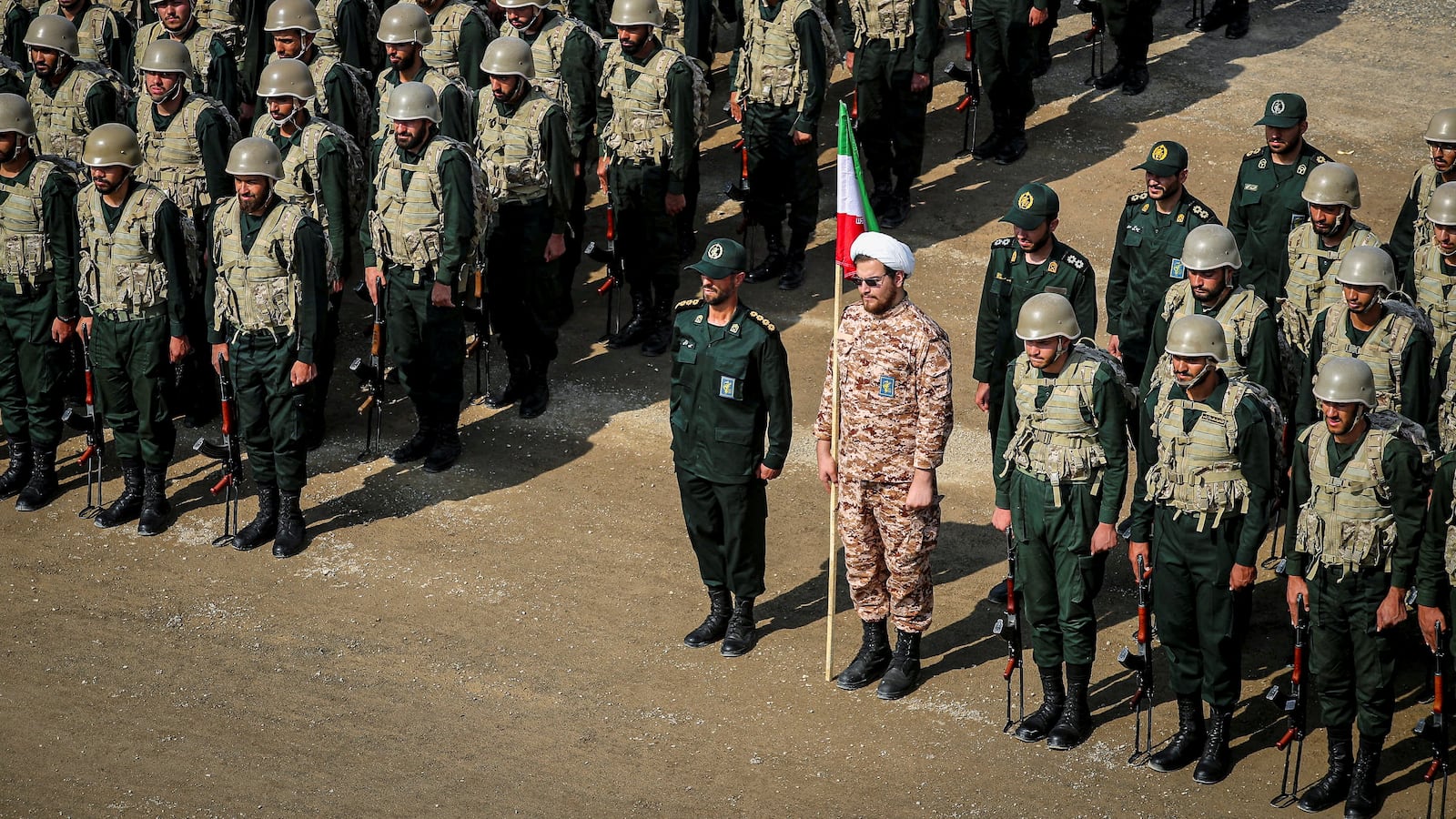The United States has launched strikes against Iranian targets inside Iraq and Syria as part of a response to the deadly drone attack in Jordan that killed three U.S. troops last weekend.
The military struck more than 85 targets tied to the Islamic Revolutionary Guards Corps (IRGC) Quds Force and affiliated militia groups, including command and control operations, intelligence centers, rockets, and missiles, U.S. Central Command said in a statement. The operation used more than 125 precision munitions.
The retaliatory strikes are likely to be a part of a rolling set of responses in the region, according to CNN.
Iranian proxies have been attacking U.S. forces in Iraq and Syria for months, and although the Biden administration has responded by striking facilities used by Kataib Hezbollah—one of the terrorist organizations blamed for some of the attacks—the deadly strike in Jordan appears to have been the breaking point for the Biden Administration.
Several aircraft, as well as long-range bombers, flew from the United States for the mission, according to CENTCOM.
President Joe Biden and U.S. Secretary of Defense Lloyd Austin vowed earlier this week to respond to the attack in Jordan and have been previewing attacks for days.
“We will have a multi-tiered response… and again, we have the ability to respond… a number of times,” Austin told reporters Thursday, alluding to attacking targets that would take away the terrorist cells’ capabilities to conduct further attacks. “We’re going to take away capability.”
“This particular attack was egregious,” he added. “It’s time to take away even more capability than we’ve taken in the past.”
The administration has faced growing pressure from Capitol Hill—and many Republicans—to respond more harshly to the Iranian-backed proxies, to stop them attacking U.S. forces in the region.
Sen. Lindsey Graham (R-SC) said if the United States doesn’t respond more forcefully now, U.S. troops will continue to fall in the crossfire.
“The only thing the Iranian regime understands is force. Until they pay a price with their infrastructure and their personnel, the attacks on U.S. troops will continue.”
While the United States is responding, U.S. officials have been wary of kicking off a broader war with Iran. The previewing has, in effect, provided militants opportunity to move out of harm’s way, a senior Iraqi official told NBC News.
Biden had determined how the United States would respond to the Jordan incident earlier this week, after multiple rounds of meetings with his national security team, according to John Kirby, White House National Security Council coordinator. The United States approved the strikes on Thursday, according to CBS News.
Biden said Friday that the United States’ retaliation was not over.
“Our response began today. It will continue at times and places of our choosing,” he said in a statement following the strikes. “The United States does not seek conflict in the Middle East or anywhere else in the world, but let all those who might seek to do us harm know this: If you harm an American, we will respond.”







